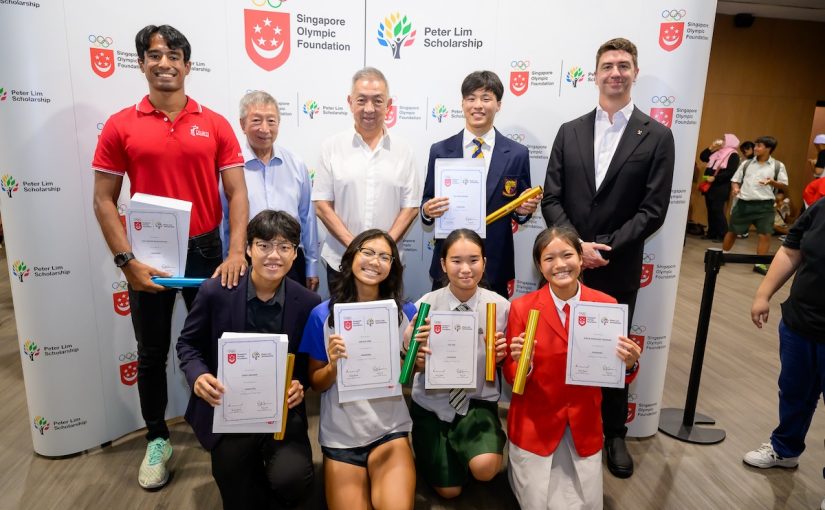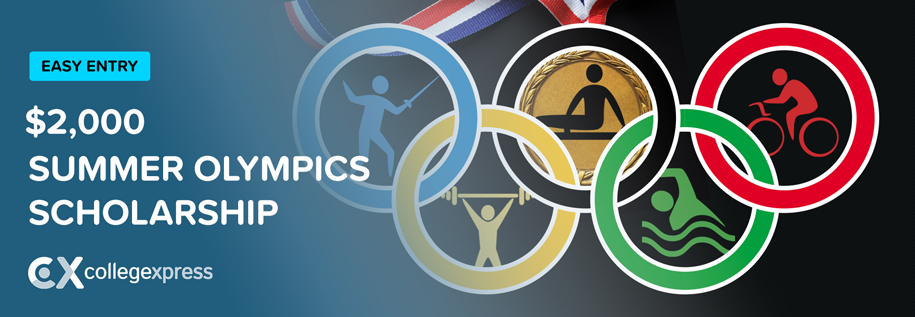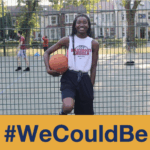
The Unseen Lifeline: How Olympic Scholarships Fuel Dreams Beyond the Track
I remember it like it was yesterday, the scent of damp earth after a morning run, the rhythmic thump of my own feet on the track, and the persistent whisper in my mind: "Olympics." It wasn’t just a dream; it was a burning ambition, a fire stoked by years of early mornings, scraped knees, and the sheer joy of pushing my limits. But even as that dream took shape, a shadow lingered – the stark reality of how expensive it all was. Equipment, coaching, travel to competitions, even just the right nutrition – it added up, threatening to extinguish that fire before it ever truly blazed. That’s when I first heard about Olympic scholarships, and it felt like finding a hidden spring in a vast desert.
Growing up, sports were my refuge. The world outside could be chaotic, but on the field or in the pool, everything made sense. I wasn’t just a kid; I was an athlete, a competitor, someone with a clear purpose. My parents, bless their hearts, did everything they could. They worked extra shifts, made sacrifices I only truly understood much later, all to ensure I had the best chance. But there’s a ceiling to what a family can provide, especially when the dream starts to flirt with elite levels. The costs escalate exponentially. I saw talented friends drop out, not because they lacked skill or drive, but because they simply couldn’t afford to keep going. It was heartbreaking, a stark reminder that talent alone often isn’t enough; resources play a massive, undeniable role.
The idea of Olympic scholarships, at first, seemed almost mythical. Was there really support out there for athletes like me, who weren’t yet household names but were pouring every ounce of their being into their sport? A coach, a grizzled veteran with a kind smile and an encyclopedic knowledge of the sporting world, was the one who first demystified it for me. He spoke of the International Olympic Committee (IOC) and various National Olympic Committees (NOCs) around the world, explaining how they understood this very struggle. They knew that raw talent often resided in places without deep pockets, and they actively sought to bridge that gap. Their mission wasn’t just to put on a grand show every four years; it was to foster athletic development globally, to ensure that financial hurdles didn’t unfairly snatch away someone’s Olympic moment.
What I learned was that these weren’t just simple cash handouts. They were comprehensive support systems designed to nurture an athlete from promising potential to Olympic contender. Think of it as an investment in a person’s entire journey. The core purpose is undeniably to alleviate the financial burden. This meant help with training costs – access to better facilities, specialist coaches, sports psychologists, physiotherapists. It covered equipment, often prohibitively expensive, ensuring athletes had the best tools for their trade. And crucially, it covered travel to competitions, allowing athletes to gain international experience, test their mettle against the best, and earn qualification points for major events, including the Olympics themselves. For someone like me, who often worried about whether I could afford the next pair of running shoes, this was transformative. It freed up mental space that was previously consumed by financial anxiety, allowing me to focus purely on my performance.
But the true genius of these scholarships, the part that truly sets them apart, is their holistic approach. They don’t just care about you as an athlete; they care about you as a human being with a life beyond the finish line. This is where the educational component comes in, a part I initially overlooked but quickly came to cherish. Many Olympic scholarship programs actively encourage and support athletes in pursuing their education, whether that’s a university degree, vocational training, or even finishing high school. They understand that a sporting career, no matter how glorious, has a finite lifespan. What happens after the cheers fade, after the medals are won or lost? Life continues, and a solid education provides a crucial safety net, a pathway to a meaningful life after sport. Balancing demanding training schedules with academic pursuits is a monumental challenge, but the scholarships often provide flexibility, tutoring support, and guidance to make it manageable. It’s about building a well-rounded individual, not just a sporting machine.
The application process itself was an experience. It wasn’t just about submitting a dazzling list of achievements. They wanted to know about me. My story, my struggles, my aspirations, my academic record, and perhaps most importantly, my potential. There were forms to fill out, detailing my training plan, my financial situation, and my future goals. I gathered recommendation letters from coaches who knew my dedication, and from teachers who could attest to my academic effort. There were interviews, sometimes with a panel of stern-faced officials, sometimes with a friendly coordinator who genuinely wanted to understand my journey. It felt a bit like an audition, not just for my athletic ability, but for my character, my resilience, and my commitment to personal growth. They weren’t just looking for raw speed or strength; they were looking for individuals who embodied the Olympic spirit – excellence, friendship, and respect. It was thorough, sometimes daunting, but ultimately fair.
Once accepted, life as a scholar-athlete took on a new dimension. My days became a meticulously choreographed dance between training, studying, and rest. Waking up before dawn for a swim, rushing to class, another training session in the afternoon, then homework late into the night. It was exhausting, no doubt, but the support network made it bearable. I had access to top-tier coaching, often alongside other scholarship recipients, creating a tight-knit community of driven individuals. We shared stories of triumph and frustration, offered words of encouragement, and understood each other’s unique pressures in a way no one else could. The medical team was always on standby, helping me navigate minor injuries and keep my body in peak condition. For the first time, I felt truly supported, part of a larger team dedicated to helping me reach my full potential.
I remember one specific competition, an international qualifier, where the scholarship truly shone through. Without the funding, I simply wouldn’t have been able to afford the flight, the accommodation, or the specialized pre-race nutrition. The stress of finances would have gnawed at me, distracting me from my focus. Instead, I arrived rested, well-fed, and mentally prepared. I performed well, not just meeting the qualification standard but exceeding my own expectations. That feeling, of being able to fully commit to my sport without the constant shadow of financial worry, was liberating. It allowed me to push harder, to train smarter, and to compete with a clear mind.
Of course, it wasn’t a magic wand that made all difficulties disappear. The pressure to perform was still immense. Injuries, though managed better with expert medical care, were still a reality. There were moments of self-doubt, days when my body ached, and my mind felt weary. The scholarship provided resources, but the grind, the discipline, the sheer effort – that still came from within. It was a partnership: their support, my dedication.
The educational aspect proved to be invaluable, not just for a hypothetical future, but for my present self. Studying provided a crucial mental break from the intensity of training. It engaged a different part of my brain, offering perspective and balance. My chosen field of study, sports science, even complemented my athletic pursuits, giving me a deeper understanding of my own body and training methodologies. It was a beautiful synergy.
As my competitive career eventually wound down, the true lasting impact of the Olympic scholarship became even clearer. The education I pursued, while balancing my athletic career, was my springboard into a new chapter. Many athletes struggle with the transition after sport, feeling lost without the structure and identity that competitive life provides. For me, the scholarship had proactively built that bridge. I wasn’t just an athlete; I was also a university graduate with skills and knowledge applicable to a new career path. I’ve seen other scholarship recipients go on to become coaches, sports administrators, doctors, engineers, and educators. The common thread is that they were prepared, not just for the Olympic podium, but for a rich and fulfilling life beyond it. They were empowered to continue contributing to society, using the discipline, resilience, and problem-solving skills honed during their athletic careers and academic pursuits.
So, for any young athlete out there, staring down the barrel of a big dream and an even bigger financial mountain, please know this: there is help. Olympic scholarships are real, and they are designed for people just like you. Don’t let financial barriers be the reason you stop pursuing your passion. Train hard, yes, but also study hard. Be diligent in your academic work, because that shows commitment to your future, something these programs value deeply. Seek out information from your national Olympic committee, from coaches, from sporting federations. Ask questions. Be persistent. Build a strong support network around you – coaches, teachers, mentors, family. Show them your dedication, not just to your sport, but to your overall development as an individual.
The journey to the Olympics, or to any elite level of sport, is incredibly challenging. It demands sacrifice, perseverance, and an unwavering belief in oneself. Olympic scholarships are more than just financial aid; they are a profound belief in an athlete’s potential, a commitment to their holistic development, and a powerful engine that helps transform dreams into reality. They are the unseen lifeline, ensuring that the fire of ambition continues to burn brightly, long enough to reach the track, the pool, the field, and ultimately, the world stage. And for that, I will be forever grateful.


